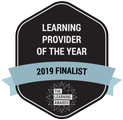Substance Misuse Training Courses
If you are looking for the highest standard of training for professionals working with Substance Misuse, then you have found it. All of the training is accredited by the Association for Psychological Therapies (APT), and we can bring any of these courses to your own organization for a fixed, all-inclusive fee no matter where you are. Some of these courses are also available for individuals to attend 'online' or 'open' (you come to us), and delegates receive the relevant level of APT-Accreditation depending on which course(s) they attend.
The below courses are of high relevance to professionals working with substance misuse.

Motivational Interviewing, and how to use it effectively.
A 3-day course.
Also known as the ‘Essentials course’ this course is available 'Open' (where you come to us) or Onsite (we come to you and deliver it to a group of up to 15 delegates).
Based on Miller and Rollnick's latest book, this course describes an organized way of helping people to recognize their problems and to do something about them. Principally it addresses behavior about which the client has mixed feelings: drinking and substance misuse for example, but a surprising array of common mental and physical health problems as well. Issues from taking psychoactive medication through to eating more healthily can all be addressed using motivational interviewing.

CBT Plus, with Alcohol and Substance Misuse.
A 3-day course.
When use of mood altering substances gets out of control it ruins the person's life - until we help them regain control.
The maladaptive use of mood altering substances (importantly, including alcohol) may easily devastate the life of the user and of those around them. Although onset may be insidious the effect can be far reaching and difficult to reverse without skilled and determined intervention. This course covers the Cognitive Behavioral Therapy solution.

SFT Essentials (Solution-Focused Therapy).
Also known as SFBT (Solution-Focused Brief Therapy).
A 3-day course.
An approach to problems that is fundamentally positive and comes as a breath of fresh air to professionals and clients alike.
Another of APT's top courses, this aims to introduce you to the principles of SFT / SFBT in a way that gives you a firm grasp of them and enables you to use them in a safe and helpful way. You should become at home with the approach which is often seen as a 'breath of fresh air' both to client and professional, looking for and finding effective solutions for problems, rather than being sucked further and further into the problem itself.

DBT Essentials.
A 3-day course.
Instruction in the key components of DBT for those who want to add them to their repertoire without necessarily becoming 'a DBT therapist', and for those thinking of taking the first step in becoming a specialized DBT therapist.
DBT brings together a series of skills and techniques which are powerful and well chosen ones, for working with personality disorder as well as in other areas. Many people want to familiarize themselves with these skills without necessarily becoming a DBT therapist exclusively, and this 3-day course is for you if you are one of those people as well as if you are thinking of taking the first step in becoming a DBT therapist. As well as covering the 'overall concept of DBT', it covers its 'essential elements', namely the concepts of: Validation; Metaphor; Relentless Problem Solving; and Contingency Management, and the skills of: Mindfulness; Distress Tolerance; Interpersonal Effectiveness; and Emotional Regulation.

The DICES® System for Risk Assessment & Management.
Available in 3-day and 2-day versions.
A cogent system that actually facilitates clinical work, this is one of our most renowned courses. Thousands of professionals have already attended it.
With the starting point that excellent risk management involves excellent clinical practice, The DICES® System for Risk Assessment and Management shows what is necessary to properly assess and manage risk easily, reliably and to the benefit of all, and this accounts for its staggering popularity.
Part one covers the nature and theory of risk assessment and management: why we do it and what we aim to achieve by it. Part two covers risk assessment specifically: if you don't notice the risk there is no chance you will manage it correctly. Part three covers risk management: there is no virtue in spotting a risk if you are not able to manage it. The end result is that not only do you know about risk assessment and management, you also have the ability and the equipment to do so reliably and well.

Providing Good Clinical Supervision.
A 2-day course.
This course is for professionals working in mental health and related fields who want to provide high-quality clinical supervision that is both effective and ethical.
Clinical supervision is a crucial process, but its purpose is often misunderstood. Should you ensure the supervisee is ‘doing it right,’ act as a sounding board for clinical thinking, or something else entirely? This course clarifies the aims of clinical supervision, introduces an effective model, and provides practical tools for setting up and delivering strong supervision contracts.
By the end of the course, you’ll feel confident in your ability to deliver effective supervision, whether one-to-one or in groups, ensuring it benefits both supervisees and their clients.

Dual Diagnosis - Substance Misuse and Affective Disorder.
A 3-day course (2-day version also available).
Dual diagnosis is generally viewed as a difficult presentation to treat. The patient may be disillusioned with conventional medication, and resigned to 'self-medicating'. And it is a frequent presentation: those with affective disorders are more likely to misuse mood-altering substanes, and those who misuse mood-altering substances are more likely to have affective disorders.
To make matters worse, patients may 'fall between two stools', with substance misuse services reluctant to treat them until they have addressed their affective disorder, and mental health services reluctant to treat them until they have addressed their substance misuse.
In summary, this is a very important presentation, and one which mental health and related services need to have a robust and well-worked response to.



